Picture
Your Present Location: HOME> PictureAuthoritative big data: the most influential think tank and scholar in Belt and Road research
Editor`s notes: On the morning of October 12th, a launch ceremony for "Belt and Road in Big Data 2017" was held in Beijing, and the report released "The Belt and Road Initiative" think tanks` influence index for the first time. Among them, Chongyang Institute for Financial Studies at Renmin University of China (RDCY) took the top spot of colleges and universities think tanks` influence list, and ranked in the top five think tanks in attracting social attentions. Meanwhile, Wang Wen, the Executive Dean of RDCY, was selected into the most active domestic experts list on "Belt and Road" research. This article was published on Global Times on October 12.
On the morning of October 12th, a launch ceremony for "Belt and Road in Big Data 2017" was held in Beijing, and the director of State Information Center Cheng Xiaobo released the report. Ou Xiaoli, counsel of the Department of Western Region Development at the National Development and Reform Commission, attended the conference and delivered an address.
This is the second comprehensive annual report released by State Information Center after the first report in 2016. The report aimed to offer a comprehensive evaluation of the progress and effectiveness of "Belt and Road" by the application of big data technologies.
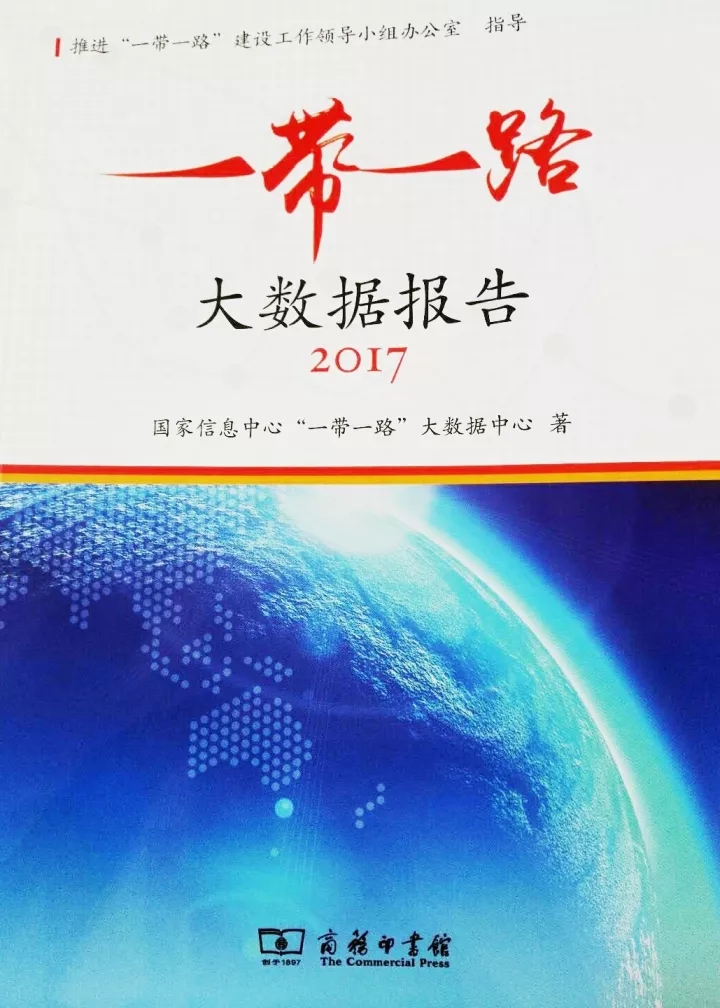
Cheng Xiaobo introduced the report of this year at the conference. He said that the report analyzed a large amount of data including more than 500 billion original data, covering more than 60 countries, 31 domestic provinces and municipalities along the "Belt and Road", as well as more than 200 enterprises, 800 think tanks and 1000 media. He emphasized that the report launched eight indexes, such as country cooperation, city participation, think tank influence, media attention and foreign trade competitiveness, focusing on the key directions, key areas, key countries and key projects of the "Belt and Road".
Ou Xiaoli said that information is a significant decision-making basis for advancing the building of the "Belt and Road". It is also an important foundation for enhancing understanding, expanding consensus and deepening cooperation with relevant countries in international communication.
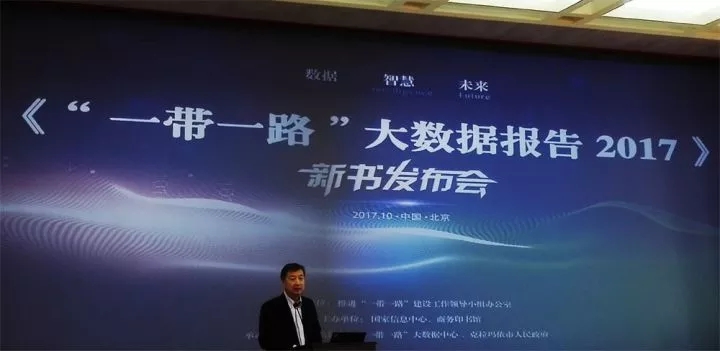
The report presents the cooperation degree between countries along the "Belt and Road". The average score of 2017 has reached 45.11, which rises by 1.56 points, revealing the cooperation effects. Russia, Pakistan, Kazakhstan, Thailand and Vietnam rank the top five countries. Compared with 2016, Russia continues to occupy the first place, with Pakistan surpassing Kazakhstan in the second place, and 60% of the country in West Asia and North Africa has risen.
The evaluating results of provincial and municipal participation show that the average score achieves 59.92, with a small increase compared with 2016. The participation rate continues to go up, and the gap between provinces and cities is shrinking. Guangdong, Fujian, Shanghai, Zhejiang and Shandong rank the top five, with East China far ahead, but the potential of the western region should not be overlooked. Compared with 2016, Fujian Province`s ranking climbs faster, as Guangxi and Xinjiang Province come into the top ten for the first time.
The report issued five indexes of "The Belt and Road Initiative" for the first time, including countries trade cooperation, provincial and municipal competitiveness, enterprise influence, think tank influence and media attention. Furthermore, think tank influence index of delivered four think tanks` lists--National Think Tanks, Local Think Tanks, Social Think Tanks and University Think Tanks, as well as a selected most active domestic experts list. According to the report, the number of think-tank institutions on the research of the "Belt and Road" is constantly increasing with rapid growth in the number of results. Think tank`s research is deepening with results in various forms, and a situation of "a hundred schools of thought contend" is gradually formed. Different types of think tanks have varied in their external communication platforms, while more and more think tanks choose social media as to let out their own voice. The international and domestic influences of think tanks start to show up, in which the national think tanks have cut a striking figure.
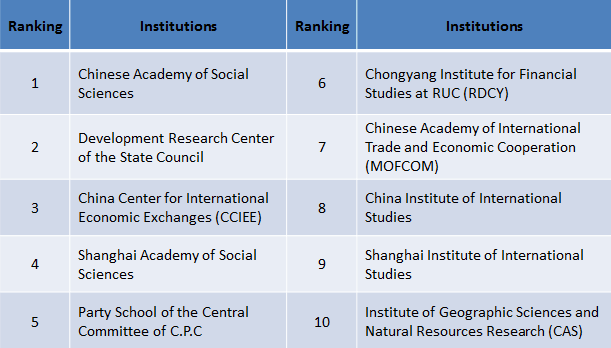
Top Ten Think Tanks with Most "Belt and Road" Papers Published
Among the think tanks evaluated, 49.17% of them have opened WeChat accounts, in which One Belt One Road 100 (OBOR100), Randi International think tank, Chongyang Institute for Financial Studies at RUC (RDCY), Center for China and Globalization (CCG), Pangoal Institution issued more articles about "The Belt and Road Initiative". From the perspective of social attention, the Chinese Academy of Social Sciences, China Institute of International Studies, Chongyang Institute for Financial Studies at RUC (RDCY), Development Research Center of the State Council and China Center for International Economic Exchanges (CCIEE) ranked the top five.
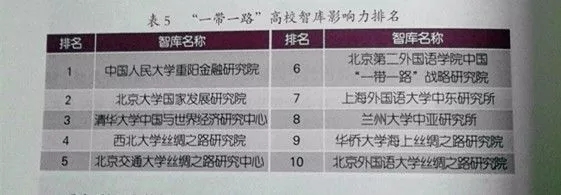
Ranking of "The Belt and Road Initiative" University Think Tanks` Influence
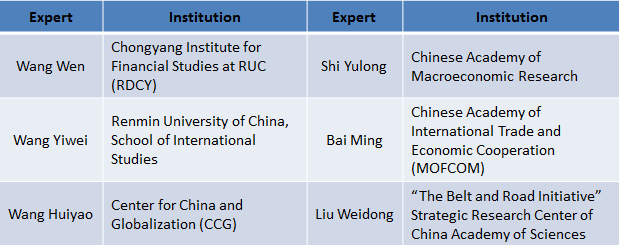
The Most Active Experts
Additionally, in the ranking list of University Think Tank influence, RDCY took the top spot. "The Belt and Road Initiative" big data center uses large data analysis and other technologies to evaluate the related paper quantity, downloads, citations and internet influence of every expert in think tanks, and selected top 30 think tank experts who delivered most voice in public channels. Wang Wen, the Executive Dean of RDCY, and Wang Yiwei, the senior researcher of RDCY are both in the list.























































































 京公网安备 11010802037854号
京公网安备 11010802037854号





